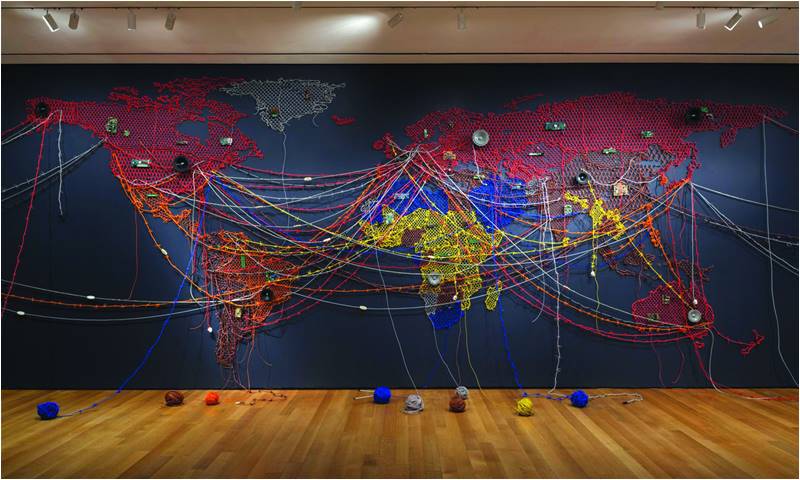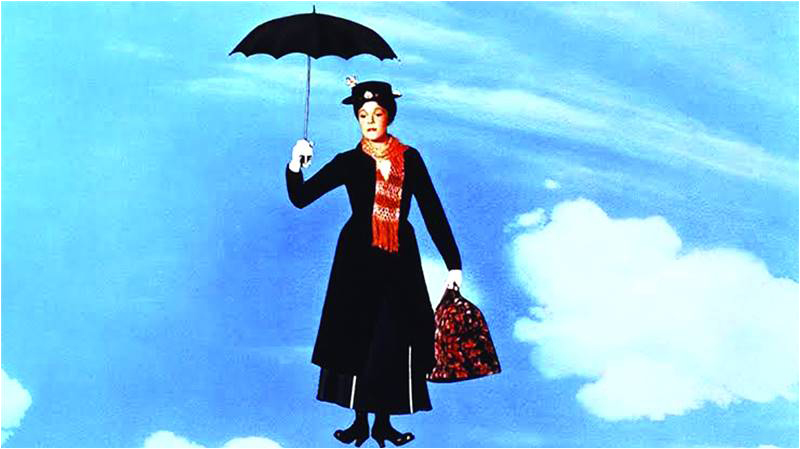
"Only until the wind changes” was my favorite line growing up. Its from the film Mary Poppins, the most practically perfect movie in every way, and she says it when the children ask her how long she’ll be staying on as their nanny. Impossibly vague but ethereally cool, it both promises and withholds affection and alI I ever wanted was to use it in conversation in my own impossibly vague, ethereally cool way. Never worked, obviously. I tried it once when my fifth grade teacher asked how much longer I would take to finish the math test that I was failing spectacularly. This was met with confusion. I used it when a college recruiter asked me If I enjoyed my school; this time a stunned silence. A few years ago US customs agents asked me how long I would be staying in the U.S. “Only until the winds change” led to five hours of questioning and the threat of a cavity search (plot twist, they’re not talking about your teeth).
But I’m still fond of the phrase. Because much like Mary Poppins, I too, shift locales for the seasons, running away in the early frost of puke-scented downtown New York to fly into the toxic smog that we now call “winters” in Lahore. The flight over was alright this time, despite the fact that I was sitting next to a demon pretending to be a 10-year-old. And even coming out in the new and disorienting parking lot of the Lahore airport, I was surprised that my lungfuls of air didn’t incinerate my biology on contact. In the time since those first (last?) few gasps, I’ve realized it kills you slowly. I am trying to ignore the thin layer of grey dust on everything everywhere, not improved by my proximity to a main road.
Whenever other people find out my migratory pattern, most are either envious, uninterested, bitter, or, more usually, a little of all three. The main advantage is that I get to see both my cities (and my lives within them) from a certain distance and renewed sense of perspective. It’s a gift, because New York is not an easy city to live in. It’s rude, quick, unpleasantly ambitious, financially needy and home to the only rats in the world that can hold up their middle finger. Leaving the city for stretches at a time allows us both space, and I get to return like a starved lover, eyes sparkling with rose tinted memories of rat-free promenade strolls with baked goods. But it takes being away to see that.
I have the same sense of renewed perspective when I come back to Lahore, but it feels less like seeing a lover than their new liver spots. The difference in air is literally lethal, the familiar trees in my neighbourhood visibly sicker, the grass browner, but most jarringly: there is a pervasive, quiet, universal and resigned sense of sadness. I thought a lot about that last word. Sadness. For years I assumed it was anger, frustration, or else outrage mixed with humour, but the one trend that I’ve noticed is the sense that people are surviving rather than living. I don’t mean this to sound judgmental, like a loathsome expat opining about things that don’t affect him. I live here for most of the year: it is the place that come to mind when I use the phrase “home” and still where significant parts of my social life and career exist.

But the contracting economy and withering ecology have combined to change the country so precipitously that even those living here all the year through can probably sense a truth to my words. I have come back to a country performing the pantomime of democracy. A place where the press isn’t simply on the defensive, it’s defeated. Almost all opposition leaders are in jail, kept there under a kind of populist cruelty that has little regard for the offices they relinquished. I thought a lot about that word too. Relinquish. Because in all the time that I’ve been writing this column, through all the bomb scares of the 2010s, the dharnas, the near-nuclear wars, the closing of airspace and censoring of media, the shooting of Malala and the massacres of children, through all of that the symbolic act of relinquishing power from one government to the next was the only - the only - act of long-term progress that I could see that could possibly help us out of our national decline. I no longer believe that a true transition of government will happen again. I wish I was braver – brave enough to name in clear print the institutions that made this our reality. I don’t know who is anymore.
“So how long are you here this time?” someone asked me last night.
I wanted to say “Only until the winds changes,” but something tells me they already have.
Write to thekantawala@gmail.com
But I’m still fond of the phrase. Because much like Mary Poppins, I too, shift locales for the seasons, running away in the early frost of puke-scented downtown New York to fly into the toxic smog that we now call “winters” in Lahore. The flight over was alright this time, despite the fact that I was sitting next to a demon pretending to be a 10-year-old. And even coming out in the new and disorienting parking lot of the Lahore airport, I was surprised that my lungfuls of air didn’t incinerate my biology on contact. In the time since those first (last?) few gasps, I’ve realized it kills you slowly. I am trying to ignore the thin layer of grey dust on everything everywhere, not improved by my proximity to a main road.
The difference in air is literally lethal, the familiar trees in my neighbourhood visibly sicker, the grass browner, but most jarringly: there is a pervasive, quiet, universal and resigned sense of sadness
Whenever other people find out my migratory pattern, most are either envious, uninterested, bitter, or, more usually, a little of all three. The main advantage is that I get to see both my cities (and my lives within them) from a certain distance and renewed sense of perspective. It’s a gift, because New York is not an easy city to live in. It’s rude, quick, unpleasantly ambitious, financially needy and home to the only rats in the world that can hold up their middle finger. Leaving the city for stretches at a time allows us both space, and I get to return like a starved lover, eyes sparkling with rose tinted memories of rat-free promenade strolls with baked goods. But it takes being away to see that.
I have the same sense of renewed perspective when I come back to Lahore, but it feels less like seeing a lover than their new liver spots. The difference in air is literally lethal, the familiar trees in my neighbourhood visibly sicker, the grass browner, but most jarringly: there is a pervasive, quiet, universal and resigned sense of sadness. I thought a lot about that last word. Sadness. For years I assumed it was anger, frustration, or else outrage mixed with humour, but the one trend that I’ve noticed is the sense that people are surviving rather than living. I don’t mean this to sound judgmental, like a loathsome expat opining about things that don’t affect him. I live here for most of the year: it is the place that come to mind when I use the phrase “home” and still where significant parts of my social life and career exist.

But the contracting economy and withering ecology have combined to change the country so precipitously that even those living here all the year through can probably sense a truth to my words. I have come back to a country performing the pantomime of democracy. A place where the press isn’t simply on the defensive, it’s defeated. Almost all opposition leaders are in jail, kept there under a kind of populist cruelty that has little regard for the offices they relinquished. I thought a lot about that word too. Relinquish. Because in all the time that I’ve been writing this column, through all the bomb scares of the 2010s, the dharnas, the near-nuclear wars, the closing of airspace and censoring of media, the shooting of Malala and the massacres of children, through all of that the symbolic act of relinquishing power from one government to the next was the only - the only - act of long-term progress that I could see that could possibly help us out of our national decline. I no longer believe that a true transition of government will happen again. I wish I was braver – brave enough to name in clear print the institutions that made this our reality. I don’t know who is anymore.
“So how long are you here this time?” someone asked me last night.
I wanted to say “Only until the winds changes,” but something tells me they already have.
Write to thekantawala@gmail.com

